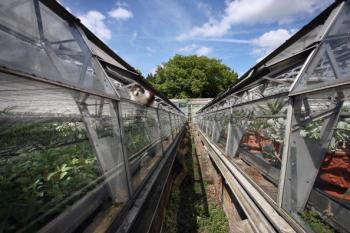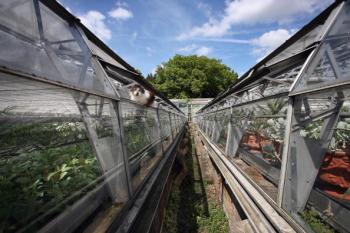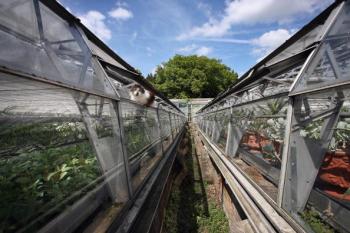Mr Leu claims nearly all the world’s agricultural emissions could be sequestered if our five billion hectares of agricultural land were converted to organic systems. In fact, certain organic systems would even be carbon negative, he told The Epoch Times.
In Australia, conventional agriculture creates 25 per cent of greenhouse emissions, once the manufacturing of synthetic fertilisers is accounted for, he said. In contrast, a recent US study found organic agriculture can sequester 7.5 tonnes of carbon dioxide per hectare per year.
Mr Leu is home briefly between trips and is getting ready to travel to Korea in preparation for next year’s world conference on organics.
The 64 hectare Leu property is a tropical haven for rare fruits, such as the white mango, scaly salaks and golfball-sized dukus. Commercial orchards include over 600 rambutan trees and about 1000 lychees. But the majority of the land is devoted to regrowth rainforest and native animals, like the buff-breasted kingfisher and the elusive platypus.
In 1975, Mr Leu introduced 20 new fruits from South-East Asia to Australia. The pioneer of the Australian exotic fruit industry is also vice-president of the International Federation of Organic Agriculture Movements (IFOAM), with over 700 members in 100 countries, uniting organic industries worldwide based on the IFOAM standards.
Australia Has the World’s Best Organic Standards
Mr Leu said Australia’s organic standards and environmental requirements are the highest in the world. An Australian organic farm must have a minimum area of 5 per cent devoted to “functional biodiversity”. He cited the use of windbreaks to provide shelter for the land and any grazing stock.
Another example is the introduction of groundcover plants known as “insectaries” to raise insect biodiversity. This, in turn, increases the numbers of other beneficial predators, such as lizards, frogs, birds and microbats, all natural enemies of pests.
The expert also mentioned “swards” of beneficial plants. These are mainly legumes, like pinto, peanut and lucerne, which fix atmospheric nitrogen into the soil. When cut periodically, they also form green manures that decompose and sequester carbon into the rich, healthy soil. Mr Leu described both processes as “soil ecoservices”.
Essentially, these “low-input, high-output resilient systems” carry out most of the farming work naturally, with greater crop yields than conventional farming and no need to spend money on fertilisers, thus also avoiding greenhouse emissions. Nature also benefits in the process, with habitats created and biodiversity increased.
On his Daintree farm, Mr Leu estimates that he has put well over 3000 tonnes of carbon dioxide back into the soil using photosynthesis and groundcovers during 12 years of sustainable orcharding.
“I’m aiming to maximise photosynthesis, trapping sunlight that my crop doesn’t use to create organic matter that feeds the farming system. Photosynthesis creates the basis of organic molecules, which are the building blocks of nature.”
Food Miles Are a Myth
The academic agriculturalist debunked the controversial theory about food miles. He explained that emissions from bulk transport of products are a small fraction compared to production and interestingly, also emissions produced when everybody takes their food home after shopping.
He commented: “When you do the life cycle analysis of growing systems, local is not always best.” The expert said it is definitely best for the environment to buy organic.
“If it’s local and organic, it’s fantastic.” But if local food is produced by conventional farming methods, there is no benefit. “It’s actually negative,” he said.






